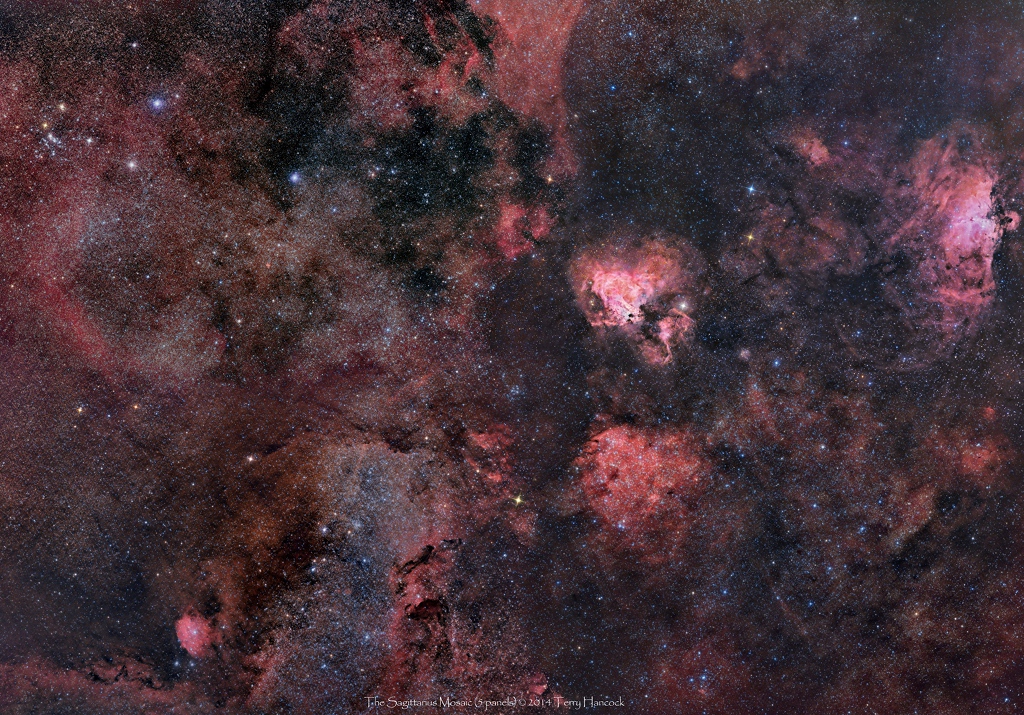Astronomy Picture of the Day
Discover the cosmos!
Each day a different image or photograph of our fascinating universe is
featured, along with a brief explanation written by a professional astronomer.
2014 September 5
 A Sagittarius Starscape
A Sagittarius Starscape
Image Credit &
Copyright:
Terry Hancock
(Down Under Observatory)
Explanation:
This rich starscape spans nearly 7 degrees on the sky, toward the
Sagittarius
spiral arm and the center of our Milky Way galaxy.
A telescopic mosaic, it features well-known
bright nebulae and star clusters
cataloged by
18th century cosmic tourist Charles Messier.
Still popular
stops
for skygazers M16, the Eagle (far right),
and M17, the Swan (near center) nebulae are the brightest star-forming
emission regions.
With wingspans
of 100 light-years or so, they shine with the
telltale reddish glow of hydrogen atoms from
over 5,000 light-years away.
Colorful open star
cluster M25 near the upper left edge of the
scene is closer, a mere 2,000 light-years distant and about 20 light-years
across.
M24, also known as the
Sagittarius Star
Cloud,
crowds in just left of center along the bottom of the frame,
fainter and more distant Milky Way stars seen through a narrow window in
obscuring fields of interstellar dust.
Tomorrow's picture: light-weekend
<
|
Archive
|
Index
|
Search
|
Calendar
|
RSS
|
Education
|
About APOD
|
Discuss
|
>
Authors & editors:
Robert Nemiroff
(
MTU) &
Jerry Bonnell (
UMCP)
NASA Official: Phillip Newman
Specific rights apply.
NASA Web
Privacy Policy and Important Notices
A service of:
ASD at
NASA /
GSFC
& Michigan Tech. U.

No comments:
Post a Comment
Please leave a comment-- or suggestions, particularly of topics and places you'd like to see covered